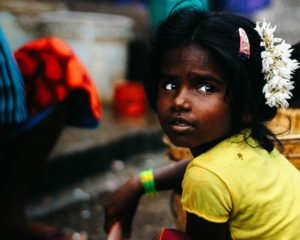Blog
Why the Global Challenges Research Fund encourages development experts to think in creative new ways
Written by Flora Miskin
November 14, 2018
A bit of background
Poverty eradication has long been an area that has eluded the savviest of international development economists and experts. Despite massive increases in global wealth, millions of people around the world continue to live in absolute poverty. Consequently, traditional development agenda clearly needs a shake-up.
Global warming will undoubtedly impact issues in global poverty. As we get nearer to 2020, the effects of global warming are becoming increasingly apparent. As climate change scientists predict, those impacted most are those least able to cope with it – the global poor. For international development experts, this means developing programmes which include actions to mitigate the effects of climate change.
How does the GCRF tie in with the global development agenda?
The UN Sustainable Development Goals has taken this in to account. At the heart of the 2030 agenda is a commitment to eliminating poverty at the same time as stopping the effects of climate change. For the global community, these are perhaps two of the most difficult issues to solve. One reason for this may be that they both require a worldwide response, which involves collaboration and agreement among the international community. Getting two countries to agree to an agenda is difficult enough, let alone creating a consensus among hundreds.
This is where the Global Challenges Research Fund (GCRF) comes in. This is a five-year fund, which boasts an ambitious portfolio for tackling some of the most pressing issues in global development. From providing clean air, water, and sanitation, to ensuring a secure and resilient food system, the fund cuts across sectors. Within a broader portfolio of work, the UK government has committed £1.5 billion pounds for the GCRF.
The UK government is uniquely well placed to coordinate an international response, given its global influence. Additionally, the government is mandated to support the fulfillment of the UN Sustainable Development Goals by 2030 and has dedicated itself to playing an active role in their execution.
How is the fund different and how will it benefit the UK?
So what is different about this fund, and why is it important? First of all, the GCRF is one of the few overseas development funds to take a truly inter-disciplinary approach. It is tackling global issues by placing science and research at the heart of its mission. This is unusual, as unsurprisingly overseas assistance normally takes a development approach, with an economics or education focus. Second, the fund places a strong emphasis on international collaboration and is working to build the research capacity of beneficiary countries. This is a great way of ensuring that development programmes are truly sustainable and reflect the needs of the people that they are intended for. Indeed, one of the most effective ways of bringing about long-lasting change is training organisations and staff within implementing countries.
So what’s the payoff for the UK? Well, the GCRF has been designed to build the capacity of UK research organisations. This is because it is injecting much-needed cash into UK research organisations. Furthermore, the research it fosters are likely to boost development within the UK itself. For instance, designing effective, affordable and reliant alternative energy systems would be useful for UK energy supply.
By empowering academics to conduct research in new settings, the GCRF encourages research organisations to think in new and creative ways. Given the current international development climate, this can only be a good thing.
LIDC recently held a GCRF Networking Workshop for researchers and professional services staff from our member institutions. You can find the round up here. To learn about the GCRF’s current funding calls, please visit its website.
Flora Miskin is currently studying for an MSc in Violence, Conflict and Development at SOAS, University of London. She is also undertaking an internship at LIDC.

